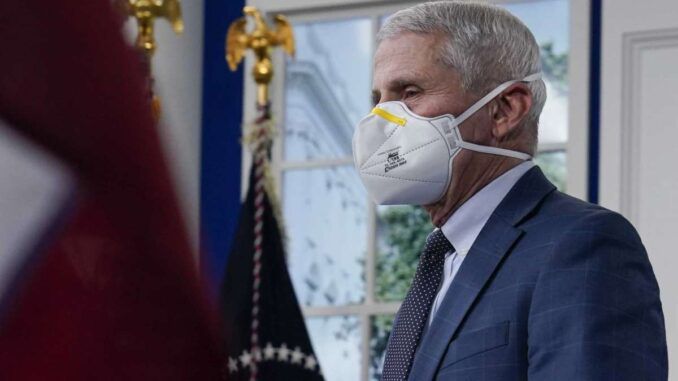Throughout 2021, Pyongyang and Beijing continued to actively demonstrate their long-standing traditional friendship by exchanging messages and holding ceremonial events.
On February 19, it was reported that Pyongyang appointed Ri Ryong-nam, a former vice-premier in charge of trade policy in North Korea’s Cabinet from June 2016 to January 2021, as ambassador to China. Previously, Ri served as trade minister from 2008 until 2016 and earlier he was the economic affairs secretary at North Korea’s Embassy in Singapore. The move was seen as a strong sign of the North’s intention to revive economic cooperation with China. On April 15, Ri Ryong-nam presented his credentials to Xi Jinping.
On June 21, the two sides solemnly marked the second anniversary of Kim Jong-un’s meeting with Xi Jinping. The Nodong Sinmun published an article by China’s ambassador to the DPRK, Li Jinjun. Li noted that “China and North Korea are well aware of the importance of peace as they have gone through tribulations all together.” Noting that this year marks the 100th anniversary of the founding of the Communist Party of China, Li also stressed that China had not changed a bit in its commitment to developing relations between the two allies. On the same day, a Chinese newspaper published an article by Ri Ryong-nam calling for “unwavering efforts to build on their traditional and friendly ties.
On July 1, Kim Jong-un sent a congratulatory message to Chinese President Xi Jinping on the occasion of the 100th anniversary of the CPC and promised to raise relations with China to a new strategic level. An editorial in the Nodong Shinmun was written in a similar style.
On July 28, on the occasion of the 68th anniversary of the Victory in Korean War, Kim Jong-un, accompanied by top party officials, visited the Friendship Monument (a monument to Chinese volunteers) and laid a memorial wreath with the words “On behalf of the entire Korean people, I pay my highest respect.”
On August 2, North Korea criticized the international human rights group Human Rights Watch for blaming China’s forced return of defectors to the DPRK, calling the group a “villainous human rights plot organization which, describing itself as an international human rights body, has actively engaged in the anti-China ‘human rights’ racket by the successive US administrations.” HRW has also been accused of slandering the “true picture” of human rights in China and spreading fabrications that the PRC violates human rights in Hong Kong, Tibet, and the Xinjiang Uyghur Autonomous Region.
On October 1, Kim congratulated Xi on the 72nd anniversary of the founding of the PRC.
On October 22, DPRK Deputy Foreign Minister Park Myung-ho harshly criticized the US policy of supporting Taiwan and exacerbating military tensions in the region. The DPRK fully supports “the stand of the Chinese government and people to safeguard state sovereignty and territorial integrity and compulsorily implement the unification of the motherland.”
On October 25, the Nodong Sinmun marked the anniversary of China’s participation in the 1950-53 Korean War. On October 26, Kim Jong-un sent a memorial wreath to the cemetery of fallen Chinese soldiers and indicated that “the friendship between DPRK and China sealed with blood will continue to be strengthened without any alteration, despite the change of generations.”
Thus, the two sides carefully emphasize the friendship of the PRC and the DPRK as the friendship of two socialist countries while using traditional Chinese clichés such as “friendship bound by blood” or “bound by mountains and rivers.” Chinese aid in the Korean War is particularly emphasized.
At the same time, one cannot but notice how, despite the confrontation, the US has not lost its attempts to organize joint pressure, assess Beijing’s strategy in the Korean issue, or drive a wedge between the PRC and the DPRK.
On July 22, US State Department spokesperson Ned Price stated that “The DPRK is one of those areas where there is at least some alignment of interests, and so we think that there is room for, at the very least, discussion with the PRC when it comes to the challenge posed by the DPRK’s nuclear and ballistic missile programs and its other threatening activity.”
On August 17, the Woodrow Wilson US think tank indicated that North Korea is economically dependent on China but it believes their relationship is fundamentally based on mistrust, explained by Juche ideology, or self-reliance, and historical events such as the mass murder of ethnic Koreans carried out by the Communist Party of China in the name of purging pro-Japanese spies in the 1930s. On the other hand, China is unwilling to resolve the North Korean issue because it views Pyongyang through the lens of competition with the United States. Hence “real practical cooperation between the United States and China on denuclearization is limited.” Moreover, unlike Washington, Beijing does not want to see regime change in the North, as it could promote stronger U.S. influence over the Korean Peninsula. “Ultimately, it is likely that China would prefer the deAmericanization of the peninsula rather than its denuclearization,”
On October 25, US Defense Department spokesman John Kirby said that “China has influence in Pyongyang, and that influence could be important in helping all of us achieve denuclearization of the Korean Peninsula.” He also noted that Beijing’s influence over Pyongyang could help the North make the right decision, and he had no information on North Korea-China weapons development cooperation. This is another reason China can help bring the North back to the dialogue table if it is willing. In addition, China can enforce existing sanctions.
In its annual report to Congress on China, the US State Department noted that China’s goals on the Korean Peninsula include stability (keeping the DPRK as a kind of buffer) and denuclearization, as well as keeping US troops away from its border. To that end, China regularly conducts military exercises and may be directly involved in a conflict on the Korean Peninsula should one arise. China also advocates for dialogue between the US and North Korea but insists that the US give the North incentives for steps toward denuclearization. According to Beijing, Pyongyang has taken denuclearization measures that deserve a commensurate US response. Meanwhile, China has failed to fully implement UN Security Council sanctions against North Korea by “not regularly acting against illicit ship-to-ship transfers in the PRC’s territorial seas and China-based North Korean banking and weapons trade representatives and their activities.”
The Pentagon annual report on Military and Security Developments Involving the People’s Republic of China presented to the US Congress on November 3, also notes that the PLA has goals such as “maintaining stability, realizing denuclearization and maintaining conditions of no US forces near the Chinese border.” Regarding maintaining stability on the Korean Peninsula, China’s military is primarily focused on preventing the fall of the DPRK regime and averting military clashes. In the event of a crisis, China’s leadership may order a security operation on the China-North Korea border to control the flow of refugees, prevent the use of weapons of mass destruction, or intervene militarily to maintain a buffer state in North Korea.
And while it is unclear to what extent the American assumptions are correct, factors that could weaken Pyongyang and Beijing’s tactical alliance are not seen in Washington in the short term.
Konstantin Asmolov, PhD in History, leading research fellow at the Center for Korean Studies of the Institute of the Far East at the Russian Academy of Sciences, exclusively for the online magazine “New Eastern Outlook”.
Related posts:
Views: 0
 RSS Feed
RSS Feed

















 November 13th, 2021
November 13th, 2021  Awake Goy
Awake Goy 




 Posted in
Posted in  Tags:
Tags: 
















